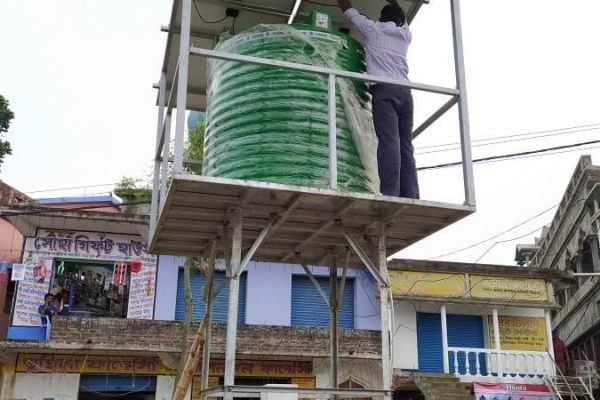Solar Water (Drinking)

Solar Water Project (Drinking)
Solar water disinfection, in short SODIS, is a type of portable water purification that uses solar energy to make biologically-contaminated (e.g. bacteria, viruses, protozoa and worms) water safe to drink. Water contaminated with non-biological agents such as toxic chemicals or heavy metals require additional steps to make the water safe to drink.
Solar water disinfection is usually accomplished using some mix of electricity generated by photovoltaics panels (solar PV), heat (solar thermal), and solar ultraviolet light collection.
Solar disinfection using the effects of electricity generated by photovoltaics typically uses an electric current to deliver electrolytic processes which disinfect water, for example by generating oxidative free radicals which kill pathogens by damaging their chemical structure. A second approach uses stored solar electricity from a battery, and operates at night or at low light levels to power an ultraviolet lamp to perform secondary solar ultraviolet water disinfection.
Solar thermal water disinfection uses heat from the sun to heat water to 70–100 °C for a short period of time. A number of approaches exist. Solar heat collectors can have lenses in front of them, or use reflectors. They may also use varying levels of insulation or glazing. In addition, some solar thermal water disinfection processes are batch-based, while others (through-flow solar thermal disinfection) operate almost continuously while the sun shines. Water heated to temperatures below 100 °C is generally referred to as pasteurized water.

